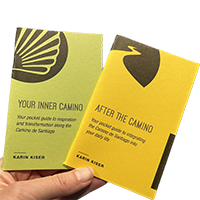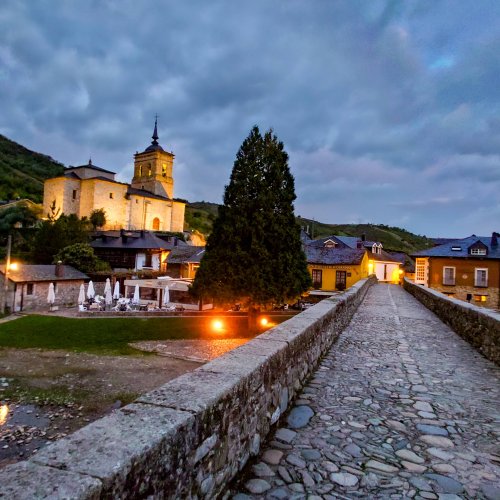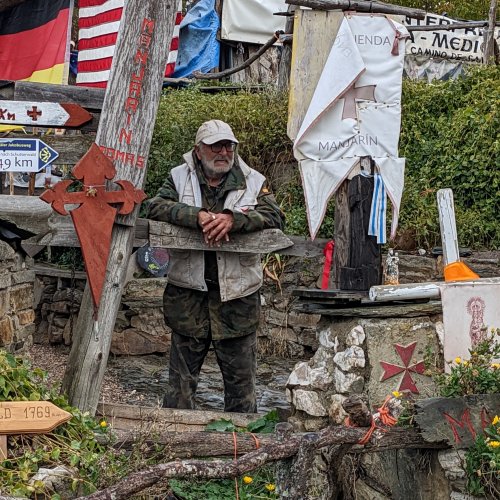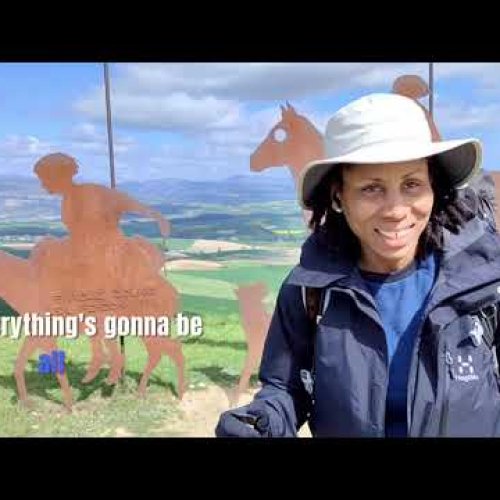Search 69,459 Camino Questions
You are using an out of date browser. It may not display this or other websites correctly.
You should upgrade or use an alternative browser.
You should upgrade or use an alternative browser.
Very light, comfortable and compressible poncho. Specially designed for protection against water for any activity.
Our Atmospheric H30 poncho offers lightness and waterproofness. Easily compressible and made with our Waterproof fabric, its heat-sealed interior seams guarantee its waterproofness. Includes carrying bag.
€60,-
Our Atmospheric H30 poncho offers lightness and waterproofness. Easily compressible and made with our Waterproof fabric, its heat-sealed interior seams guarantee its waterproofness. Includes carrying bag.
€60,-
- Jul 1, 2009
- 4,360
- 19,764
- Time of past OR future Camino
- 2009-2022: CFx6, CP, VdlPx2, Mozarabe, more later.
Adding "por favor" is very important in Spain: It is common politeness. I have learnt by failing to do so...
Last edited:
- Feb 11, 2022
- 780
- 2,045
- Time of past OR future Camino
- Last 114km C. Frances, Jul 21
2023 - C. Primitivo
I try to learn Good Morning/Day, please, thank you, and excuse me, since I inevitably use them most...
Get a spanish phone number with Airalo. eSim, so no physical SIM card. Easy to use app to add more funds if needed.
Smile.My best advice in any language. Learn how to introduce yourself, and be thankful for help.
View attachment 144659
A smile will connect you with people like no words can do.
Lettinggo.
- May 24, 2018
- 144
- 353
- Time of past OR future Camino
- Camino Frances (2018)
Camino Podiensis (2023)
Learn please, thank you, good morning, etc then use Google Translate conversation. You can have almost fluent conversations that way.
I would build on what dbier mentioned, learning the translations for those things that will be used most;
Una cama por favor = A bed please
una naranja y una manzana, por favor = an orange and an apple please.
Yo quiero agua / cerveza / cafe / te / zumo de naranja = I want water / beer / coffee / tea / orange juice
The names of the meals;
desayuno = breakfast
almuerzo = lunch / dinner (Midday)
cena = supper (Evening)
Further expansion of one's vocabulary might include foods, parts of the body, weather, directions.
Learn what you can before going.
I have been studying Spanish now for 4 years now and do recommend Duolingo. Though Castilian Spanish is not available on Duolingo, it will still be well understood en España.
Una cama por favor = A bed please
una naranja y una manzana, por favor = an orange and an apple please.
Yo quiero agua / cerveza / cafe / te / zumo de naranja = I want water / beer / coffee / tea / orange juice
The names of the meals;
desayuno = breakfast
almuerzo = lunch / dinner (Midday)
cena = supper (Evening)
Further expansion of one's vocabulary might include foods, parts of the body, weather, directions.
Learn what you can before going.
I have been studying Spanish now for 4 years now and do recommend Duolingo. Though Castilian Spanish is not available on Duolingo, it will still be well understood en España.
Last edited:
The 2024 Camino guides will be coming out little by little. Here is a collection of the ones that are out so far.
Wendy Werneth
Pilgrim
A couple of small corrections:I would build on what dbier mentioned, learning the translations for those things that will be used most;
Una cama por favor = A bed please
una naranja y una manzana, por favor = an orange and an apple please.
Yo quieres agua / cerveza / cafe / te / jugo de naranja = I want water / beer / coffee / tea / orange juice
The names of the meals;
desayuno = breakfast
almuerzo = lunch / dinner
cena = supper
Further expansion of one's vocabulary might include foods, parts of the body, weather, directions.
Learn what you can before going.
I have been studying Spanish now for 4 years now and do recommend Duolingo.
"I want" is "yo quiero". "Quieres" is the second person conjugation, i.e. "tu quieres" means "you want".
While "cama" is the general word for "bed" and would be understood, a bunk bed in the context of an albergue is called a "litera".
While "jugo" is the word used for juice in Latin American Spanish (which is what Duolingo teaches), in Spain it's "zumo".
Lastly, we seem to have different ideas of what "dinner" means in English, so just to clarify, "almuerzo" is the midday meal (or rather, the afternoon meal in Spain, usually eaten between 1pm and 3pm), and "cena" is the evening meal.
K_Lynn
Buen Camino!
Please, thank you, and hello are the most important words to learn in any language. It drove me crazy that some people wouldn't even attempt those.
If you have a food allergy or sensitivity learn how to tell that to the waitstaff, eg Soy muy alérgica al ajo, ¿qué es seguro para mí comer? (I am very allergic to garlic. What is safe for me to eat) By the end of Camino I could rattle that off with ease. Or course, this year I'll be walking in Portugal so... Sou muito alérgico a alho, o que é seguro para mim comer?
As a Canadian, I felt I also needed to learn: Perdon, Disculpe, Lo Siento
If you have a food allergy or sensitivity learn how to tell that to the waitstaff, eg Soy muy alérgica al ajo, ¿qué es seguro para mí comer? (I am very allergic to garlic. What is safe for me to eat) By the end of Camino I could rattle that off with ease. Or course, this year I'll be walking in Portugal so... Sou muito alérgico a alho, o que é seguro para mim comer?
As a Canadian, I felt I also needed to learn: Perdon, Disculpe, Lo Siento
- Feb 4, 2018
- 3,106
- 15,323
- Time of past OR future Camino
- Some in the past; more in the future!
In case you don't know how to pronounce alho, it's something like al-you (Portuguese words ending in an o tend to take a u sound instead).Or course, this year I'll be walking in Portugal so... Sou muito alérgico a alho, o que é seguro para mim comer?
Technical backpack for day trips with backpack cover and internal compartment for the hydration bladder. Ideal daypack for excursions where we need a medium capacity backpack. The back with Air Flow System creates large air channels that will keep our back as cool as possible.
€83,-
€83,-
- Feb 19, 2016
- 20,007
- 3
- 62,518
- Time of past OR future Camino
- Francés, Norte, Salvador, Primitivo, Portuguese
Maybe @MariaSP will chime in. She has a Spanish for the Camino website and now a podcast too!
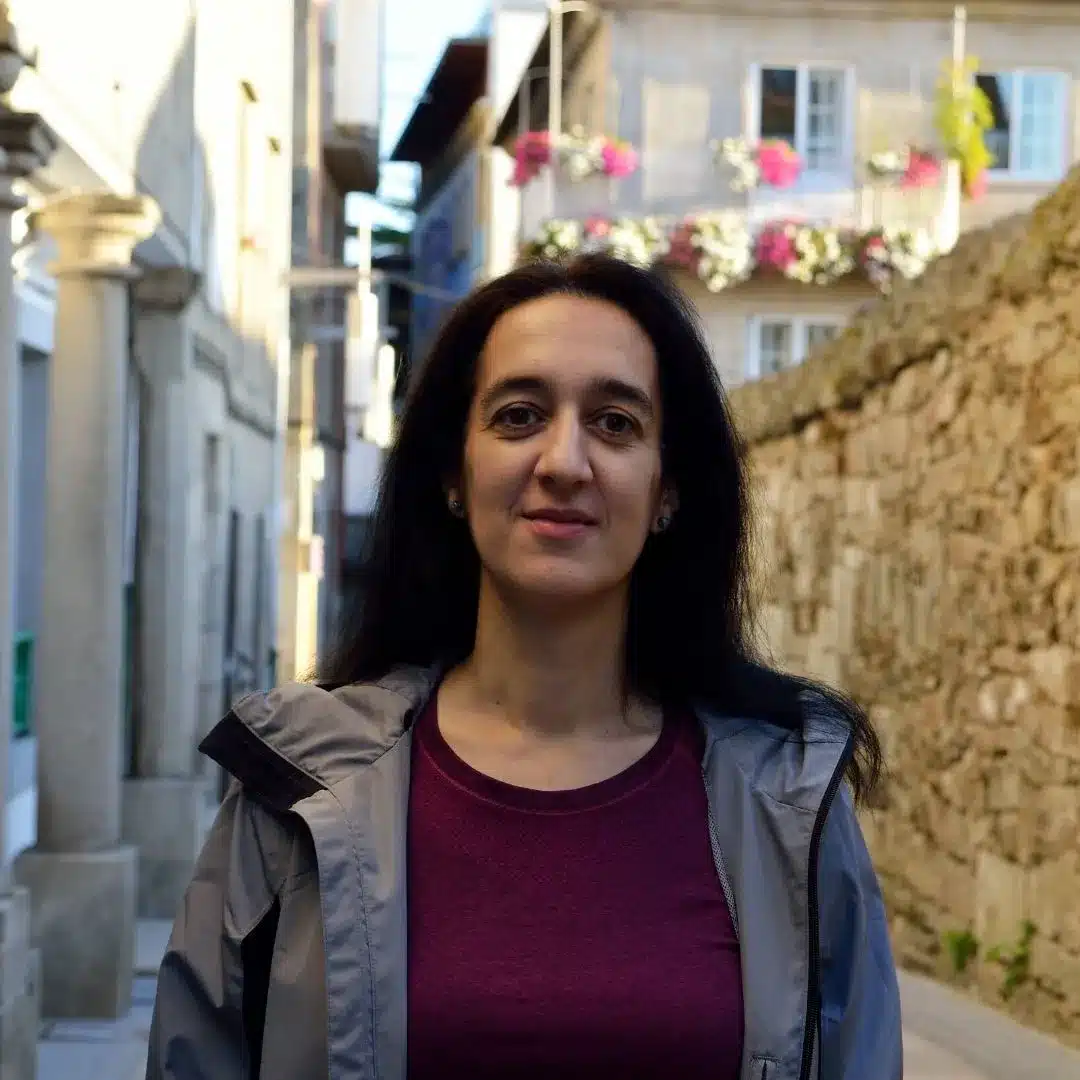
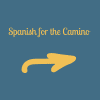 spanishforcamino.com
spanishforcamino.com

Spanish for the Camino
I help pilgrims learn the Spanish they need for their walk across Spain on the Camino de Santiago.
 spanishforcamino.com
spanishforcamino.com
barbara olsen
New Member
- Dec 5, 2015
- 9
- 12
- Time of past OR future Camino
- Camino Portugese 2016
Frances 2023 (April)
I love this!My best advice in any language. Learn how to introduce yourself, and be thankful for help.
View attachment 144659
MariaSP
Active Member
- Dec 11, 2017
- 177
- 756
- Time of past OR future Camino
- C. inglés 2029
C. portugués 2021, 2022
Just to add to your corrections:A couple of small corrections:
"I want" is "yo quiero". "Quieres" is the second person conjugation, i.e. "tu quieres" means "you want".
While "cama" is the general word for "bed" and would be understood, a bunk bed in the context of an albergue is called a "litera".
While "jugo" is the word used for juice in Latin American Spanish (which is what Duolingo teaches), in Spain it's "zumo".
Lastly, we seem to have different ideas of what "dinner" means in English, so just to clarify, "almuerzo" is the midday meal (or rather, the afternoon meal in Spain, usually eaten between 1pm and 3pm), and "cena" is the evening meal.
"Yo quiero" means "I want" but "yo" is unnecessary; "quiero" sounds more natural. Also "(yo) quiero" come come across as a bit demanding when ordering/asking for things. "Quería" is the more polite way to ask.
The 2024 Camino guides will be coming out little by little. Here is a collection of the ones that are out so far.
MariaSP
Active Member
- Dec 11, 2017
- 177
- 756
- Time of past OR future Camino
- C. inglés 2029
C. portugués 2021, 2022
Por favor, gracias, perdón... are not the most important words to learn in Spanish. English speakers (in general) use them way too much when speaking Spanish, and they don't really have the desired effect. It is more important to greet people, for instance, before you start saying your piece.Please, thank you, and hello are the most important words to learn in any language. It drove me crazy that some people wouldn't even attempt those.
If you have a food allergy or sensitivity learn how to tell that to the waitstaff, eg Soy muy alérgica al ajo, ¿qué es seguro para mí comer? (I am very allergic to garlic. What is safe for me to eat) By the end of Camino I could rattle that off with ease. Or course, this year I'll be walking in Portugal so... Sou muito alérgico a alho, o que é seguro para mim comer?
As a Canadian, I felt I also needed to learn: Perdon, Disculpe, Lo Siento
- Feb 19, 2016
- 20,007
- 3
- 62,518
- Time of past OR future Camino
- Francés, Norte, Salvador, Primitivo, Portuguese
How about quisiera?Also "(yo) quiero" come come across as a bit demanding when ordering/asking for things. "Quería" is the more polite way to ask.
MariaSP
Active Member
- Dec 11, 2017
- 177
- 756
- Time of past OR future Camino
- C. inglés 2029
C. portugués 2021, 2022
Too formal and old fashioned. Nobody would use "quisiera" in Spain.How about quisiera?
New Original Camino Gear Designed Especially with The Modern Peregrino In Mind!
Ooooh - I had no idea! That is very helpful to know, thank you. Would never think to say "Quería"!Too formal and old fashioned. Nobody would use "quisiera" in Spain.
K_Lynn
Buen Camino!
Perhaps I should have placed "hello" before please and thank you.Por favor, gracias, perdón... are not the most important words to learn in Spanish. English speakers (in general) use them way too much when speaking Spanish, and they don't really have the desired effect. It is more important to greet people, for instance, before you start saying your piece.
Regarding perdon, sometimes, humour is not immediately apparent. Canadians say sorry to furniture when we bump into it. Hyperbole perhaps, but not entirely inaccurate. Sorry for the misunderstanding!
- Feb 11, 2022
- 780
- 2,045
- Time of past OR future Camino
- Last 114km C. Frances, Jul 21
2023 - C. Primitivo
Yes, I found a lot of blank stares when I used "Quisiera." I thought it was my accent through aOoooh - I had no idea! That is very helpful to know, thank you. Would never think to say "Quería"!
The one from Galicia (the round) and the one from Castilla & Leon. Individually numbered and made by the same people that make the ones you see on your walk.
I was just going to say that! Greeting people with a simple hello, how are you goes a long way. I found that out the hard way! A Spanish pilgrim and I were talking about the social protocols and how they differ from country to country. Sadly, he said North Americans were the worst offenders (I'm including you, Canada)!Por favor, gracias, perdón... are not the most important words to learn in Spanish. English speakers (in general) use them way too much when speaking Spanish, and they don't really have the desired effect. It is more important to greet people, for instance, before you start saying your piece.
A lot, not all, of servers, baristas and general service people find it rude to just walk up and start ordering.
They are service people, not servants!
Twenty years ago when I did some research prior to a visit to France, my understanding was that it was polite to greet people first, whether in a shop, restaurant or not, and always follow the greeting with a monsieur / madame. Now, on another thread, we are learning that many, if not most, people in Spain would be offended if they were addressed as señor / señora, and that a simple buenas días / buenas tardes is all that is expected. Do people in France feel the same way about monsieur / madame now? Have things changed in twenty years? Just curious.
Also I believe I read on another thread - and correct me if I’m wrong here - that most visitors to Spain say por favor and gracias more frequently than it is required or expected. If that is true, I think it a great pity. I may be old-fashioned but a please tacked on to the end of a request (or in reply to a question like Would you like onions on your hot dog? Yes, please / No thank you) or a thank you tacked on to the end of a transaction, is music to my ears.
Also I believe I read on another thread - and correct me if I’m wrong here - that most visitors to Spain say por favor and gracias more frequently than it is required or expected. If that is true, I think it a great pity. I may be old-fashioned but a please tacked on to the end of a request (or in reply to a question like Would you like onions on your hot dog? Yes, please / No thank you) or a thank you tacked on to the end of a transaction, is music to my ears.
Last edited:
New Original Camino Gear Designed Especially with The Modern Peregrino In Mind!
Muchas gracias, Wendy. Espero haber cubierto todas las correcciones necesarias.A couple of small corrections:
"I want" is "yo quiero". "Quieres" is the second person conjugation, i.e. "tu quieres" means "you want".
While "cama" is the general word for "bed" and would be understood, a bunk bed in the context of an albergue is called a "litera".
While "jugo" is the word used for juice in Latin American Spanish (which is what Duolingo teaches), in Spain it's "zumo".
Lastly, we seem to have different ideas of what "dinner" means in English, so just to clarify, "almuerzo" is the midday meal (or rather, the afternoon meal in Spain, usually eaten between 1pm and 3pm), and "cena" is the evening meal.
- Feb 19, 2016
- 20,007
- 3
- 62,518
- Time of past OR future Camino
- Francés, Norte, Salvador, Primitivo, Portuguese
Is that because you are applying your cultural norms to another culture?Also I believe I read on another thread - and correct me if I’m wrong here - that most visitors to Spain say por favor and gracias more frequently than it is required or expected. If that is true, I think it a great pity. I may be old-fashioned but a please tacked on to the end of a request (or in reply to a question like Would you like onions on your hot dog? Yes, please / No thank you) or a thank you tacked on to the end of a transaction, is music to my ears.
- Feb 4, 2018
- 3,106
- 15,323
- Time of past OR future Camino
- Some in the past; more in the future!
No, France/French is still more formal than Spain/Spanish.Do people in France feel the same way about monsieur / madame now? Have things changed in twenty years? Just curious.
A selection of Camino Jewellery
- Jul 14, 2020
- 670
- 2,484
- Time of past OR future Camino
- Portuguese Coastal 2021 Frances Leon/Muxia2023
Now, on another thread, we are learning that many, if not most, people in Spain would be offended if they were addressed as señor
First night in Masnou near Barcelona with my daughter we went for dinner!
I remember thanking the owner muchas gracias senor ; he just said no senor.
I presume that was because he didn't like it.
I like acquiring language.
However when i get in situations : (not the basic question type) where i need more words even if i know them i get flustered. (word order etc language transfer has expanded my vocabulary and grammar but not my confidence to use it)
But like in some posts above a smile works wonders
Woody
I don' t think that adding always " por favorAdding "por favor" is very important in Spain: It is common politeness. I have learnt by failing to do so...
I don't say "por favor" or "gracias" in a shop or restaurant in Spain because I pay for the service. I say it to ask somone on the street for an address.Also I believe I read on another thread - and correct me if I’m wrong here - that most visitors to Spain say por favor and gracias more frequently than it is required or expected. If that is true, I think it a great pity. I may be old-fashioned but a please tacked on to the end of a request (or in reply to a question like Would you like onions on your hot dog? Yes, please / No thank you) or a thank you tacked on to the end of a transaction, is music to my ears.
You have asked a very good question, and I will try to keep that in mind when I find myself in another culture, and I’ll try not to let my hackles rise at what I might perceive as a lack of a please or thank you. However, that will not dissuade me from using please and thank you in situations - in whichever culture I’m in - where I feel it appropriate or where such omission on my part would make me feel uncomfortable. That includes all situations, whether I’m asking directions or paying for a service. Unless, probably, if the person is being a real jerk, then he/she doesn’t deserve anything.Is that because you are applying your cultural norms to another culture?
The 2024 Camino guides will be coming out little by little. Here is a collection of the ones that are out so far.
You may be paying for the service, but what about the employee who is delivering the service (most probably with a smile no matter what his/her personal circumstances). I don’t know anyone who wouldn‘t appreciate a thank you. And politeness greases the wheels of civility. I just try to be kind.I don' t think that adding always " por favor
I don't say "por favor" or "gracias" in a shop or restaurant in Spain because I pay for the service. I say it to ask somone on the street for an address.
In that case I would leave more tip. The new generations in Spain tend to say more "por favor" and "gracias" in purchase cases, maybe by the American movies influence. For me that' s OK but I don't have this custom. I follow the "old rules".You may be paying for the service, but what about the employee who is delivering the service (most probably with a smile no matter what his/her personal circumstances). I don’t know anyone who wouldn‘t appreciate a thank you. And politeness greases the wheels of civility. I just try to be kind.
Last edited:
- Mar 18, 2012
- 8,548
- 27,650
- Time of past OR future Camino
- To Santiago + back
2400 km + 950 nmi
160 days
As @trecile said already, cultural norms vary - not only between countries but even between regions etc. When you are a foreigner and a non-native speaker, nobody minds whether you add a Madame, or a Sir, or a love or a dear or a thank you or please or not in a given situation. When you are a more advanced speaker of the foreign language, you start to pay attention to such subtle differences and may want to learn more about it.You may be paying for the service, but what about the employee who is delivering the service (most probably with a smile no matter what his/her personal circumstances). I don’t know anyone who wouldn‘t appreciate a thank you. And politeness greases the wheels of civility. I just try to be kind.
Either here or in another thread, somebody thought he would be always polite when using the formal usted address in Spanish in Spain. Native speakers of Spanish tried to explain that it is not necessarily perceived as being polite. You may also notice that staff in restaurants don’t welcome you with the same enthusiasm as in the USA for example … (at least that is my impression - my own experience is limited). I still remember how taken aback we were during our first visit when the person who served our table introduced himself by name, asked my husband “how are you today, sir” and how he could help us …
Ideal pocket guides for during & after your Camino. Each weighs only 1.4 oz (40g)!
MariaSP
Active Member
- Dec 11, 2017
- 177
- 756
- Time of past OR future Camino
- C. inglés 2029
C. portugués 2021, 2022
Just because we don't say 'please' and 'thank you' that much in Spain doesn't mean we are not being kind or showing appreciation. We just have different ways of doing it.You may be paying for the service, but what about the employee who is delivering the service (most probably with a smile no matter what his/her personal circumstances). I don’t know anyone who wouldn‘t appreciate a thank you. And politeness greases the wheels of civility. I just try to be kind.
I understand it's part of your culture to say 'please' and 'thank you' a lot (way too much by Spanish standards
Old lushes, experienced users of Spanish bars, will be aware that you greet the assembled company when you enter. “Hola” will do but “Buena Dia/Tardes” will do better. “Que tal?” will gain more of the camarero’s attention than a mere demand for “beer”. When the assembled company of truck drivers, Guardia and campesinos in some arse end of nowhere Meson offering that perfect 12€ menu wish you “Buen Provecho” they do actually mean it
A selection of Camino Jewellery
Yes, later this spring I expect to be visiting a country where I’ve been warned not to expect people to smile at me. Perhaps there are other things I should not expect either.Cultural differences extend to smiling - it's not always considered a polite and friendly thing to do in some cultures.
View attachment 144757
There is an entertaining TV advert for one of the global banking corporations that poses why  might be a gesture of approval in your culture but just might mean something very different elsewhere.
might be a gesture of approval in your culture but just might mean something very different elsewhere.
Anyone who has heard, and understood, the tirade of obscenity that greets every new, but local, arrival in a rural Spanish bar will know what I mean. If it sounds like a fight is about to break out relax. If everything goes quiet: finish your drink
Anyone who has heard, and understood, the tirade of obscenity that greets every new, but local, arrival in a rural Spanish bar will know what I mean. If it sounds like a fight is about to break out relax. If everything goes quiet: finish your drink
- Jul 14, 2020
- 670
- 2,484
- Time of past OR future Camino
- Portuguese Coastal 2021 Frances Leon/Muxia2023
Which UK airport do you land atYes, later this spring I expect to be visiting a country where I’ve been warned not to expect people to smile at me. Perhaps there are other things I should not expect either.
Get a spanish phone number with Airalo. eSim, so no physical SIM card. Easy to use app to add more funds if needed.
Following with this:In that case I would leave more tip. The new generations in Spain tend to say more "por favor" and "gracias" in purchase cases, maybe by the American movies influence. For me that' s OK but I don't have this custom. I follow the "old rules".
S'll vous plait means if you like
Please has to do with like
Bitte has to do with ask
Por favor has to do with favour (as a favour).
Now, some people in Spain say literally:
"Give me one kilo of potatoes, as a favour", but I don't (yet).
All noted; thank you. However, in English, it would be more polite to say, “May I have one kilo of potatoes, please.” With respect to “Give me one kilo of potatoes, please.” I was told long ago that tacking a please onto what pretty much constitutes a direct order, doesn’t exactly cut it.Following with this:
S'll vous plait means if you like
Please has to do with like
Bitte has to do with ask
Por favor has to do with favour (as a favour).
Now, some people in Spain say literally:
"Give me one kilo of potatoes, as a favour", but I don't (yet).
Some time ago I asked of the forum what was the polite way of asking for, say, a café con leche as I was not comfortable saying, “Yo quiero un café con leche, por favor.” It took some time but, eventually, someone came up with “quisiera un café….” Now, I understand that “quisiera“ is too formal and that “queria” is preferable. But I still need to understand exactly what “quería” means.
What I’m trying to say (and not doing very well) is that I think I’m beginning to understand why please and thank you may not be used in Spanish as often as they are used in English. (It’s early hours here and I need to get back to sleep.)
The one from Galicia (the round) and the one from Castilla & Leon. Individually numbered and made by the same people that make the ones you see on your walk.
MariaSP
Active Member
- Dec 11, 2017
- 177
- 756
- Time of past OR future Camino
- C. inglés 2029
C. portugués 2021, 2022
'Quería' is one of the past tenses of 'querer' (to want), so literally it would translate as 'I wanted'. But I think it's a good idea to let go of literal translations and sometimes simply trust that 'that's how you say X in this language'. If you analyse certain phrases word by word, they will either not make sense or they will have you thinking you're not being polite or something else along those lines.Now, I understand that “quisiera“ is too formal and that “queria” is preferable. But I still need to understand exactly what “quería” means.
A good example of that is the 'Give me one kilo of potatoes' you mention. A common belief among my students (mostly English speakers), is that the imperative = direct orders, and so they struggle to use it in certain situations in Spanish. But the imperative in Spanish is used for many things (giving advice, giving permission, making suggestions...). Giving direct orders is only one of its many uses.
- Mar 18, 2012
- 8,548
- 27,650
- Time of past OR future Camino
- To Santiago + back
2400 km + 950 nmi
160 days
It says quería in the question but I think what is meant is perhaps querría (which, confusingly for me at least, is apparently called condicional in Spanish).'Quería' is one of the past tenses of 'querer' (to want), so literally it would translate as 'I wanted'. But I think it's a good idea to let go of literal translations and sometimes simply trust that 'that's how you say X in this language'
You are right, of course, to point out that it is better to just trust that this is how native speakers express polite requests or, better even, to hear these expressions being used so many times that one adopts them without analysing vocabulary and grammar and without resorting to literal translations and literal equivalencies of polite forms between languages that simply don’t exist.
MariaSP
Active Member
- Dec 11, 2017
- 177
- 756
- Time of past OR future Camino
- C. inglés 2029
C. portugués 2021, 2022
No, 'quería' is fine; it's what we most frequently use. You could use 'querría' too, which as you say is the conditional tense (equivalent to the English 'I would like/want). But 'quería' is more common (and I'd say easier to pronounce too for those who struggle to roll their RsIt says quería in the question but I think what is meant is perhaps querría (which, confusingly for me at least, is apparently called condicional in Spanish).
You are right, of course, to point out that it is better to just trust that this is how native speakers express polite requests or, better even, to hear these expressions being used so many times that one adopts them without analysing vocabulary and grammar and without resorting to literal translations and literal equivalencies of polite forms between languages that simply don’t exist.
Down bag (90/10 duvet) of 700 fills with 180 g (6.34 ounces) of filling. Mummy-shaped structure, ideal when you are looking for lightness with great heating performance.
€149,-
€149,-
- Mar 18, 2012
- 8,548
- 27,650
- Time of past OR future Camino
- To Santiago + back
2400 km + 950 nmi
160 days
Oh, that is a surprise for me. But then, at the level where I am and will probably remain, I mainly use presente and preterito perfecto and voy and vamos for all future events.No, 'quería' is fine; it's what we most frequently use
- Feb 19, 2016
- 20,007
- 3
- 62,518
- Time of past OR future Camino
- Francés, Norte, Salvador, Primitivo, Portuguese
It's the same in English of course. Often I think of common phrases in English and think that they would be very confusing to someone just learning the language.If you analyse certain phrases word by word, they will either not make sense or they will have you thinking you're not being polite or something else along those lines.
WGroleau
Wandering Weirdo aka 伟思礼
- Nov 23, 2015
- 997
- 1,310
- Time of past OR future Camino
- 2015–2018 (partial)
Usted (Ud./Vd.) is said to be a shortening of "vuestra merced" (your grace) which is not only quite formal but almost implies you are speaking to someone very important. Using it to replace tu & vosotros is a "new world" phenomenon. If your pronunciation is good enough, folks might assume you're Mexican.Either here or in another thread, somebody thought he would be always polite when using the formal usted address in Spanish in Spain. Native speakers of Spanish tried to explain that it is not necessarily perceived as being polite. You may also notice that staff in restaurants don’t welcome you with the same enthusiasm as in the USA for example … (at least that is my impression - my own experience is limited). I still remember how taken aback we were during our first visit when the person who served our table introduced himself by name, asked my husband “how are you today, sir” and how he could help us …
Technical backpack for day trips with backpack cover and internal compartment for the hydration bladder. Ideal daypack for excursions where we need a medium capacity backpack. The back with Air Flow System creates large air channels that will keep our back as cool as possible.
€83,-
€83,-
isawtman
Active Member
- Aug 27, 2021
- 319
- 773
- Time of past OR future Camino
- Camino Frances, 2022
Ice Age Trail, 2014, 2019
On the Frances most of the time in the morning you line up at the counter in a cafe. Then you just point at what you want because they have the items on the counter. I would usually buy an extra ham (jamon) sandwich for lunch. Then I was pretty much set for the day as long as I had some candy bars and other treats. Getting stuff at a grocery store isn't all that difficult either. I only had a problem at one albergue where the nun didn't understand me, but someone stepped in to interpret. The only time I went to the pharmacy I used my phone to interpret. I would write something on my phone and the pharmacist would write a reply on her phone. Still on every occasion I would try using Spanish. Now, the next time I go on a Camino it's likely I may do a lesser traveled camino where there are less English speakers. That might be more of a challenge. Another idea is to do a Portuguese Camino where more people understand English because it is taught in schools there.
John Cook
Member
I'm currently on the VdlP, about 300kms in and since leaving Sevilla, I haven't met one local who speaks English. Learning more than a few basic phrases of Spanish is almost essential here, if you want to understand what's going on around you. I found a course on YouTube that gives some free introductory lessons and doesn't cost much for the full course.
- Feb 6, 2020
- 782
- 1,635
- Time of past OR future Camino
- Starting May 2023 from St Jean Pied de Port
It's taught in schools in Spain. I'm here teaching it right now!because it is taught in schools there
The one from Galicia (the round) and the one from Castilla & Leon. Individually numbered and made by the same people that make the ones you see on your walk.
- Jan 18, 2015
- 7,515
- 33,153
- Time of past OR future Camino
- Too many and too often!
That hasn't been my experience in two VdlP walks. Certainly much less English spoken than on the Camino Frances but I did meet a few locals who spoke enough English for a basic conversation. Not something you could rely on though.I'm currently on the VdlP, about 300kms in and since leaving Sevilla, I haven't met one local who speaks English.
- Feb 19, 2016
- 20,007
- 3
- 62,518
- Time of past OR future Camino
- Francés, Norte, Salvador, Primitivo, Portuguese
I found about the same level of English spoken in the small towns on the Portuguese as in similar places in Spain.Another idea is to do a Portuguese Camino where more people understand English because it is taught in schools there.
It's easier for me in Spain where I can (poorly) speak Spanish thsn in Portugal where I can't understand anyone, but I'm able to read a bit
Canadian here and I agree 100%. I only understood this on my third trip to France. I was on a bus in Paris going from the Gare du Nord to my AirBnB. Each time the bus stopped and someone (male/female or young/old) got on, someone would stand up and give them their seat with a sweeping gesture almost bowing and a Madame or Monsieur. It was like the 3 musketeers in action. French courtliness is still very much the norm. I was so embarrassed thinking about all the times I just launched into a conversation or ignored a shop person. No wonder they hate us. Now I always say "Bonjour, Madame/Monsieur". I even fooled a shop person. She immediately launched into very fast French and I was in over my head in seconds. We laughed afterwards. She said, "I was sure you were French!" The ultimate compliment!I was just going to say that! Greeting people with a simple hello, how are you goes a long way. I found that out the hard way! A Spanish pilgrim and I were talking about the social protocols and how they differ from country to country. Sadly, he said North Americans were the worst offenders (I'm including you, Canada)!
A lot, not all, of servers, baristas and general service people find it rude to just walk up and start ordering.
They are service people, not servants!
3rd Edition. More content, training & pack guides avoid common mistakes, bed bugs etc
Most read last week in this forum
I did not use Bookings.com during my Camino, but most pilgrims I met did. And from this site it is evident that most people use Bookings at least some of the time.
This article is for those of...
Hi all,
I have access to data on arrivals of pilgrims to Santiago by day, country, age, gender, departure point, route, reason and means used. Based on this data, I am analysing it to develop a...
Currently I am in Burgos resting up from a knee injury. I am not giving up the possibility of continuing on foot, but in the meantime I would like ideas of options in the event that I can not...
Hi all, just a quickie,
Has anyone else noticed that the older you get, the larger the ratio of medication: kit you carry in your rucksack? This time round it appears to be around 60% walking...
....asked me to remind you that May 12 is the Feast of Santo Domingo de la Calzada.
Similar threads
- Locked
- Replies
- 21
- Views
- 3K
❓How to ask a question
How to post a new question on the Camino Forum.
Similar threads
-
-
They still ride horses, don't they?
- Started by dbier
- Replies: 59
Most downloaded Resources
-
“All” Albergues on the Camino Frances in one pdf“All” Albergues on the Camino Frances in one pdf
- ivar
- Updated:
-
A selection of favorite albergues on the Camino FrancésFavorite Albergues along the Camino Frances
- Ton van Tilburg
- Updated:
-
Profile maps of all 34 stages of the Camino FrancesProfile maps of all 34 stages of the Camino Frances
- ivar
- Updated:











